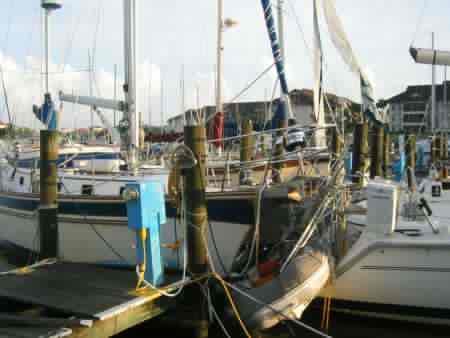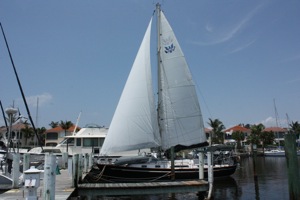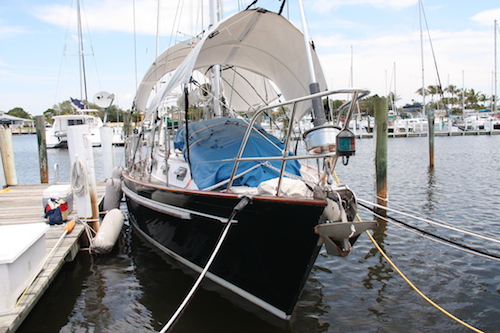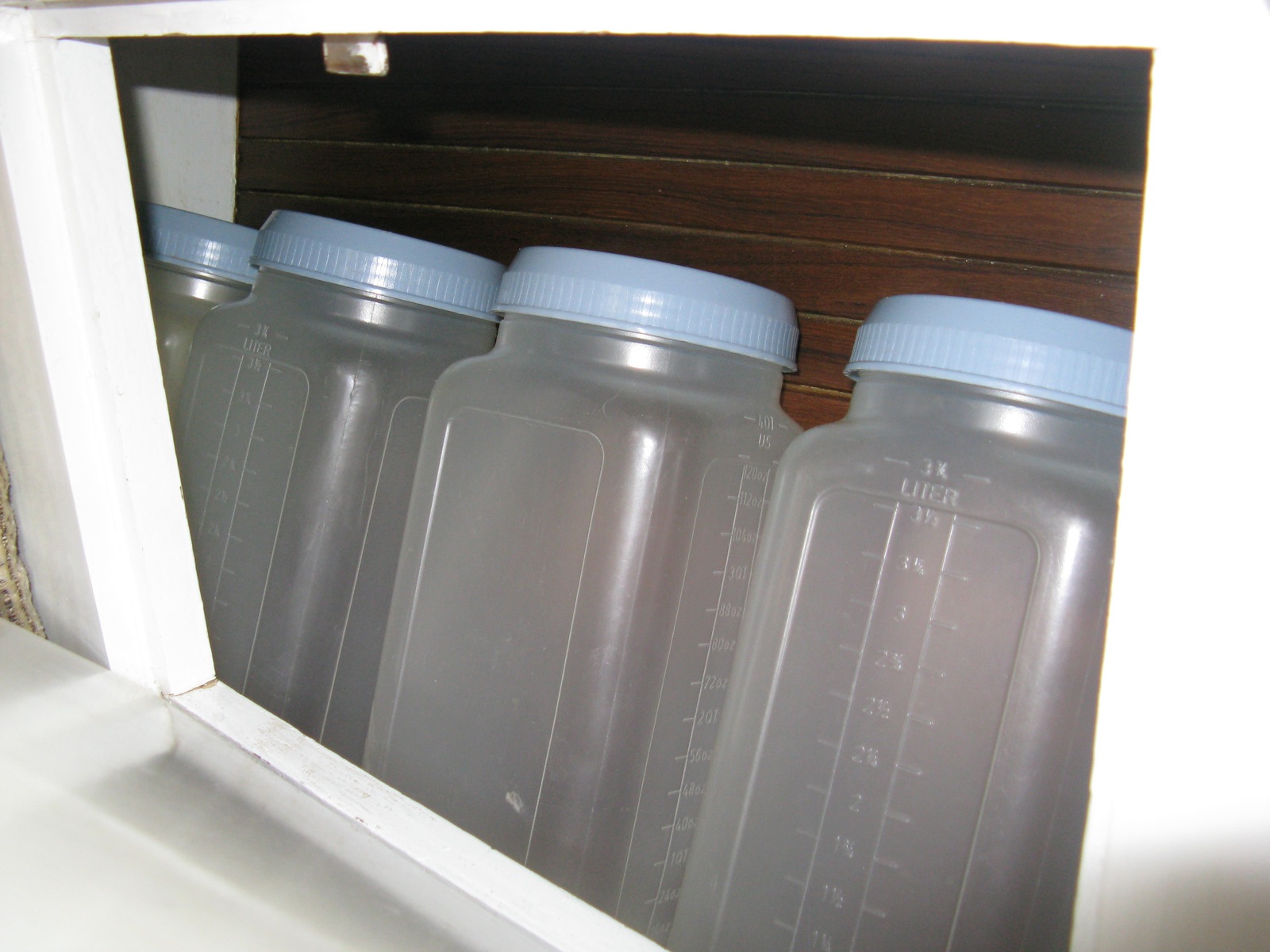… or a diesel mechanic … or a sail repair loft … or anything you might need when you arrive at a new marina in a new cruising location. Depending on your style of commuter cruising, one of the challenges may be finding competent and reliable experts in whatever expertise you need.
It can be a real dilemma since once you leave the US (or even in the US for that matter), “experts” come and go. There have even been cases of the experts leaving a boat in worse shape than when they arrived. It’s unfortunate but necessary to be on the alert for unscrupulous characters.
And it’s not just outside the US … a couple years ago in a marina in south Florida, a diesel mechanic had a reputation for taking parts to get them rebuilt and somehow they … and he… never showed up again! Obviously the unfortunate people who had boats worked on by this schemer didn’t realize the situation until after the fact. And just this past winter (2011), we personally knew a few boats who had contracted for extensive canvas work, paid part up front as is normal, and never got their canvas … or had it partially complete and never finally finished.
While you can never guarantee honesty, to avoid being taken advantage of try these steps:
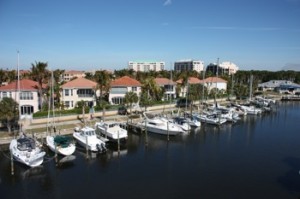
1. From the minute you arrive in a new marina, be aware of what’s going on around you. Walk the docks, talk to other cruisers, they will be your most reliable source of information. Whenever you see a cruiser aboard, ask if they have a caretaker and if so, who they use, what types of responsibilities they have and if they’re satisfied. If you’re looking for a mechanic or teak person etc, when see a boat that has particularly nice stainless work or canvas or teak or whatever, stop and ask the owner if they did it themselves or if someone else worked on it. If it’s someone else locally, you’ve just got your first lead in tracking down the “experts” you need. Usually we arrive in a marina where we’re going to leave the boat for the season well ahead of our appointed time of departure. This allows us the luxury of time to find a reliable caretaker or that season’s indispensable “experts”, as well as “fun” time. It is no fun to work work work getting your boat ready to leave with no time allocated to explore the area or to just sit around with new friends and kibitz!
2. Take note of the patterns … after a few discussions with others in the marina, you’ll start to develop patterns. When a name starts to come up over and over with other cruisers saying that they’re happy, you should add this person’s name and contact information to your list.
3. Formulate a plan of exactly what you want the caretaker (or diesel mechanic or teak expert or whoever) to do. Make sure you are very clear in your expectations. We write ours down and leave a copy on the nav desk and give a copy to our caretaker. If for example, you want them to check the battery water levels monthly and add distilled water when necessary, make sure you have the distilled water aboard and easily located before you leave.
4. After you’ve identified 2 or 3 candidates that get rave reviews (or at least reliable reviews) from other cruisers, contact each of them and ask if they’d be willing to meet with you. Review the written list of duties to be performed and the time frame for each as well as the monthly fee or charges and if there are any additional charges. For example, Winterlude is unfortunately for the first time in six years back in hurricane zone. We have a list of caretaker duties to be performed either every other week or monthly, depending on the task. We pay a monthly fee for these. However if a hurricane or tropical storm is bearing down on the marina, we have another list of assigned tasks – these are outside the normal monthly maintenance fee and we’ve agreed on compensation for “hurricane” preparation tasks ahead of time.
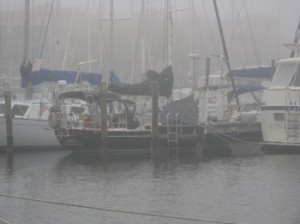
A tip on caretakers — the closer they live to your boat’s location the better. Our current caretaker is a cruiser that lives aboard on the dock behind us, prior caretakers have been marina employees, marina managers, other cruisers that live in the marina etc. If they’re there on a daily basis, even when they’re not aboard and taking care of your boat, they’ll keep an eye out to make sure everything looks as it should.
5. Once you’ve found the ideal candidate, finalize the arrangements and request a final meeting for the day or two before you’re ready to leave. Don’t do it earlier because you want your boat to be pretty much in the shape it will be in while you’re gone. For us that means sails on the floorboards, all the cushions and locker doors askew, the bilge wide open, etc. That way the caretaker can see exactly what he or she is dealing with and ask questions accordingly. Review each responsibility and demonstrate what you expect if there’s any question. Some caretakers have requested I leave a checkoff sheet on the nav desk with boxes for each task to be performed each time so they can initial it with the date to make sure they’ve accomplished everything in a timely manner. Ask about payment requirements — here in the US it’s easy to mail a monthly check, outside the US the caretaker would likely never see the check so you’ll have to decide to either pay up front or set up some other arrangement. In a couple of cases, we had marina managers willing to take the caretakers money up front and dole it out monthly or when a job was done in the case of teak or stainless or hull/topsides wax.
6. Make sure everyone understands how to contact you and ideally a backup plan in case it’s an emergency and you can’t be reached. In the US this is easy, it’s a simple phone call or e-mail depending on the situation. Outside the US it gets a bit more complicated. We’ve had good luck with Skype and/or Skype chat for marinas in out of the way places. The first year we left Winterlude in the Rio Dulce, we hadn’t been home a week when our caretaker (also marina manager) Skyped me in a panic. Winterlude had a VERY annoying alarm going off, they couldn’t find it anywhere and others on the dock were complaining! 🙂 Turned out it was a smoke alarm we had tucked away in a far corner of the lazarette on the opposite side of the diesel than was easily accessible (I say this loosely since nothing aboard Winterlude is easily accessible!). Apparently the salt air had gotten to the alarm and even after the batteries were replaced, it still wouldn’t shut up! So it was disabled.
Just about every season, there’s some issue, usually small, that causes our caretaker to need to contact us. One year it was a stuck check valve, one year a bilge pump burnt out, this year it was a storm that came through and broke one of our flexible tent poles on our Shadetree awning.
7. Make sure you leave all the supplies for whatever you’re having done easily accessible. For example, when we were having a couple more clear gloss coats added to our teak, we left the sandpaper, cetol gloss and all the necessary paraphernalia in the cockpit in an old cooler.

Go home and enjoy your summer with the reassurance that your boat is well cared for and if any situations arise, you’ll be the first to know!
Do you have other tips or things to watch out for when selecting a caretaker or other “expert”? Please leave a comment with your suggestions so we can all benefit! THANKS! Jan



